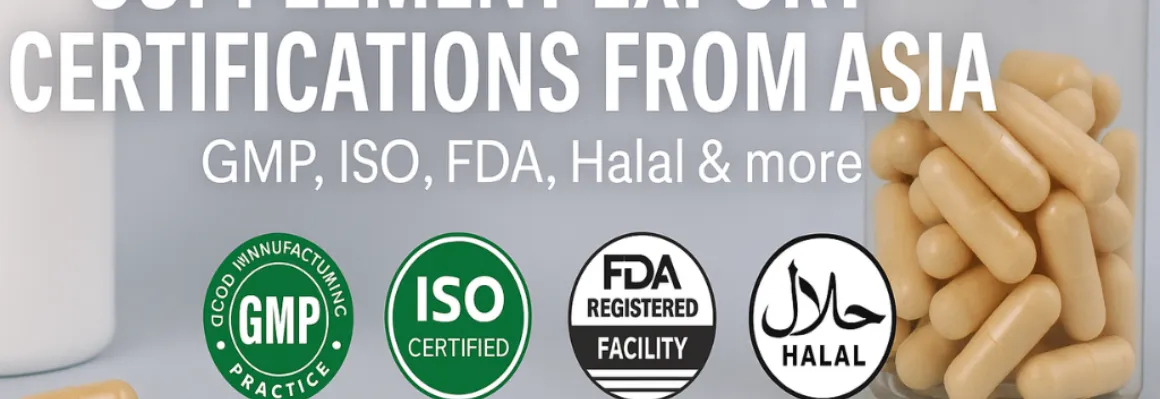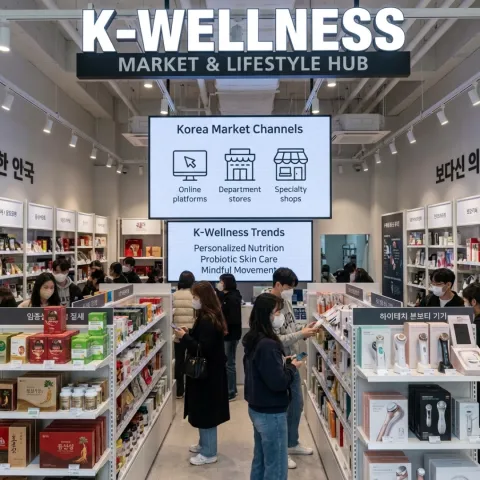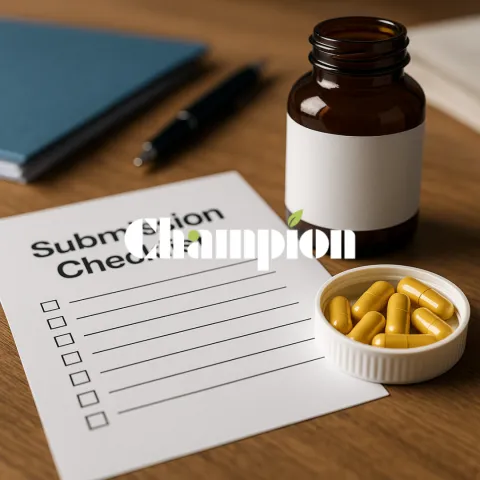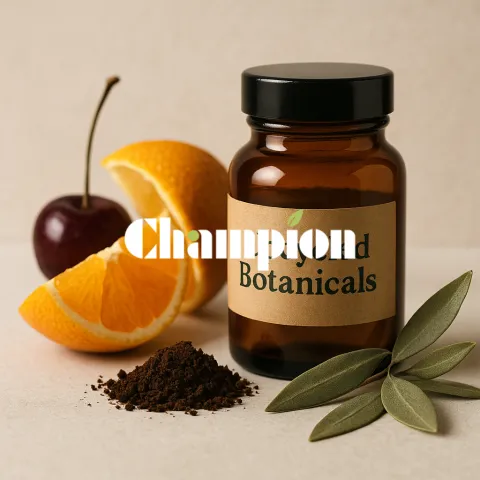Blog
25.Aug.2025
Exporting Supplements from Asia: What Certifications Do Buyers Really Care About?

Introduction
Asia is a global powerhouse for supplement manufacturing and export, but international buyers increasingly demand robust certifications for safety, quality, and compliance. As standards evolve across GMP, ISO, FDA, Halal, and region-specific requirements, supplement brands and OEMs must navigate a complex landscape to unlock international growth. This guide breaks down what matters most to buyers in 2025 and how Asian exporters—like Champion—demonstrate world-class readiness for global trade.Why Export Certifications Are Critical For Supplements
- International buyers now list “recognized certifications” among their top three purchase criteria, right alongside price and delivery reliability.
- Brands lacking visible certification lose out on high-value contracts, especially in North America, the EU, and Middle East.
- In ASEAN alone, supplement market cross-border sales totaled $7.6B in 2024, with over 80% of transactions requiring at least GMP or Halal certification as a baseline standard.
Expert Interview:
“A well-managed certifications portfolio is a non-negotiable for export success. Whether you’re targeting China, Europe, or the Middle East, buyers expect to see internationally and locally recognized marks on every certificate.”— J. Chu, Regulatory Affairs Consultant, Asia Export
Core Export Certifications: What Global Buyers Require
1. Good Manufacturing Practice (GMP)
- Regarded globally as the minimum qualification for supplement export.
- GMP ensures production consistency, safety, cleanliness, quality control, and traceability of all processes and ingredients.
- Certification can be based on domestic standards (e.g., Thai FDA, China NMPA) or international bodies (e.g., NSF, SGS).
- Annual audit required, with batch tracking and corrective action protocols as standard.iasiso-asia+1
2. ISO Certifications
- ISO 22000 (food safety) and ISO 9001 (quality management) are most relevant for supplement exporters.
- Demonstrates rigorous systems for hazard control, supply chain security, and continuous improvement.
- Usually required for access to European, Japanese, and premium North American buyers.
3. FDA Registration/Certification
- U.S. buyers expect Asian exporters to be registered with the FDA and comply with 21 CFR Part 111 (cGMP for dietary supplements).
- For China, supplemental registration falls under NMPA with strict ingredient and labeling scrutiny.
- Airports and border authorities globally have ramped up spot checks for FDA-documents and facility registration numbers.
4. Halal Certification
- Mandatory for Muslim-majority markets, including Indonesia, Malaysia, Middle East, and increasingly important in Southeast Asia.
- Recognized certifiers: IFANCA (international), JAKIM (Malaysia), MUI (Indonesia), and Central Islamic Council of Thailand.
- Covers ingredient traceability, pork/alcohol exclusions, dedicated facility lines, and annual recertification.
- From 2026, mandatory Halal for imported health supplements in Indonesia signifies a major compliance shift.
5. Regional and ASEAN Certifications
ASEAN Health Supplement Guidelines (2025):- Defined categories for supplements, functional foods, and traditional medicines.
- Harmonized ingredient lists, excipient limits, and labeling protocols now cover 10 Southeast Asian nations.
- Streamlined product registration: pre-market notification for low-risk products, full approval for higher-risk categories.
Country-Specific Requirements: Spotlight
| Country | Notable Certifications | Key Agencies & 2025 Updates |
| China | NMPA, CFDA, Blue Hat | Stricter ingredient/labelling, approval for “health foods” |
| Thailand | Thai FDA, GMP, ISO, Halal | Revised vitamin/mineral limits, QR batch codes, new import laws |
| Indonesia | BPOM, Halal (mandatory 2026) | Stricter ingredient and stability rules |
| Malaysia | NPRA, JAKIM Halal, GMP | Post-market surveillance, fast-track variation timelines |
| Singapore | HSA, manufacturer GMP | No pre-market approval but full GMP accountability |
| Middle East | Halal, ISO, FDA | Halal absolutely required for retail, local agent registration |
| USA/EU | FDA (USA), EFSA (EU), GMP, ISO | Markets require full documentation package |
What OEM Buyers & Brands Care About
The Certifications Checklist for Supplement Exporters:- Up-to-date GMP for all production facilities
- ISO 22000 or 9001 certificates for food safety/quality
- Local FDA/NMPA registration numbers or licensed agents
- Halal certification (plus Kosher, Vegan, Organic if targeting specialty markets)
- Export/document control systems for labeling, batch codes, and claims substantiation
Case Example: Champion’s Export-Ready Compliance Portfolio
Champion demonstrates full international readiness by:- Maintaining multi-standard GMP certification (local and NSF)
- Holding ISO 22000, ISO 9001, and HACCP recognition
- Keeping up-to-date FDA and CFDA registration numbers
- Operating Halal-dedicated lines and certs (JAKIM, IFANCA, CICOT)
- Providing bilingual export documentation kits for cross-border audits
OEM Interview:
"The complexity is huge, but our team manages clear records and regular inspections for every major export region. It’s not about just ticking boxes—buyers want to see real, active management of compliance at every level."— S. Wongsuwan, Compliance Director, Champion
Key Trends: The Future of Export Certification in Asia (2025 Onward)
- Digitalization: QR codes for instant traceability and digital documentation are going mainstream, reducing customs delays.
- Harmonization: ASEAN guidelines mean single-document registration is growing, but differences still remain—local experts are essential.foodresearchlab
- Halal Expansion: Indonesia’s mandatory Halal step for imports is reshaping OEM and export strategies across the region.cmaustralia
Frequently Asked Questions
Q: Which certifications matter most for first-time supplement exporters from Asia?A: GMP, ISO (22000/9001), and Halal (target markets). FDA or local NMPA/CFDA registration is essential for US/China. Always check the latest regional rules!
Q: Do buyers really verify every document?
A: Yes—many buyers request digital copies, renewal dates, and audit histories before purchase.
Q: What are the cost and time considerations?
A: Certification costs range from $1,500 (basic Halal) to $40,000+ (NSF GMP for large facilities). Timelines: 2–8 months depending on standard and country.



















